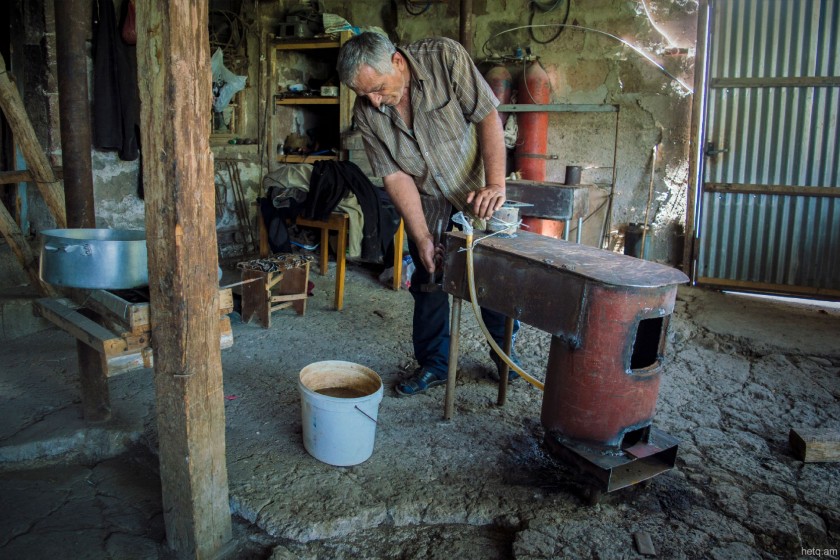
The Cholyans of Buzhakan: “You won’t solve anything by whining”
Residents of Buzhakan, a village in Armenia’s Kotayk Province, have been without natural gas since the country gained independence 26 years ago.
Gas pipes were installed during the Soviet-era, but they were never connected to houses. The collapse of the Soviet Union prevented the project from being completed.
Mayor Karen Galstyan told Hetq that the issue has been raised with provincial authorities, and that Prime Minister Karen Karapetyan is aware of the problem.
Galstyan says that a resolution is in the hands of Gazprom Armenia, but that the utility company says it doesn’t have the financial means to resolve the issue right now.
Village residents point out that neighboring villages are connected to the natural gas network and ask why not them.
Residents must use wood or animal dung to heat their homes from the start of November until the end of May. Winters are cold in Buzhakan.
Each household must purchase an average of ten cubic meters of wood for heating, not a small expenditure.
Hetq visited the home of Khachatour and Tamar Choloyan. The couple say that officials have forgotten them, as if the village is off the map.
They’ve rigged a way to get the gas into their house, but it’s a dangerous hook-up.
They fill up their car’s tank with natural gas at the station servicing vehicles, and then transfer the gas to larger tanks in the house. It’s then piped to their kitchen stove.

Mr. Choloyan has decided to rig a system for heating the house this year. He’s fashioned a stove that he claims can burn wood and other items.


Many have left the village for seasonal work.
“90% of families have someone overseas. The village depends on the money they send back. There’s no work here,” says Tamara Poghosyan, a former teacher at the village kindergarten. It closed in 2002.
“I used to get out of the house, staying busy with the children, until six in the evening. Now, I stay home doing chores,” she says.
Like most village residents, the Choloyans are engaged in agriculture, mostly growing potatoes and cabbage.


“We work at the pleasure of god, hoping that the hail won’t destroy it all. You’re amazed at all the work you’ve accomplished throughout the year, but when it comes to selling, the crop turns to dust,” the Cholyan’s complain.
But they remain optimistic.
“You won’t solve anything by whining,” they say.
 Videos
Videos Photos
Photos




Write a comment